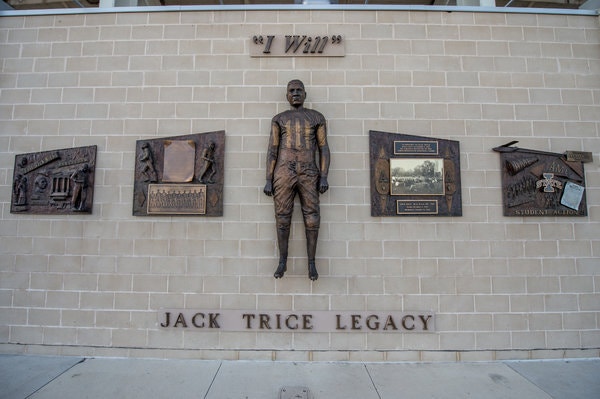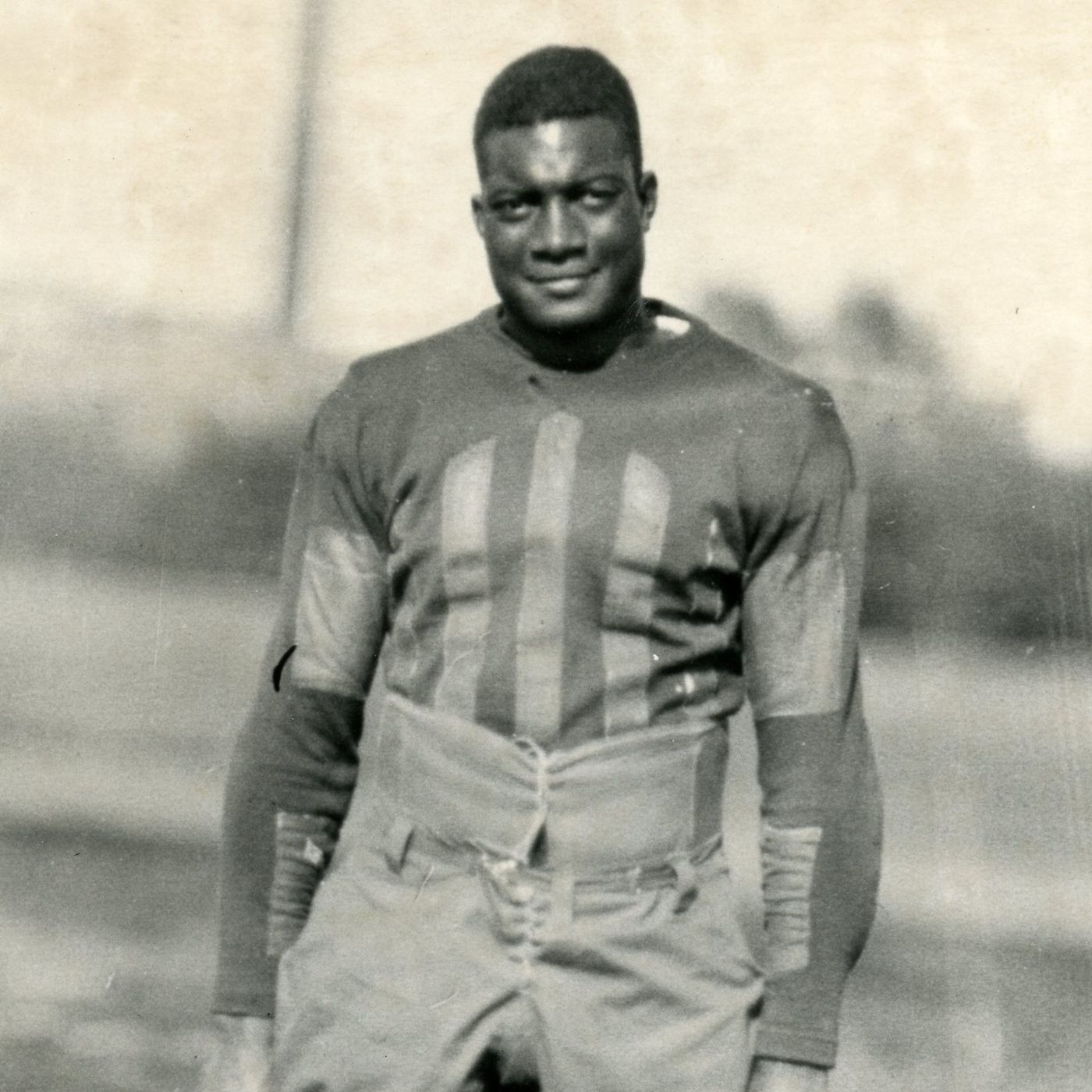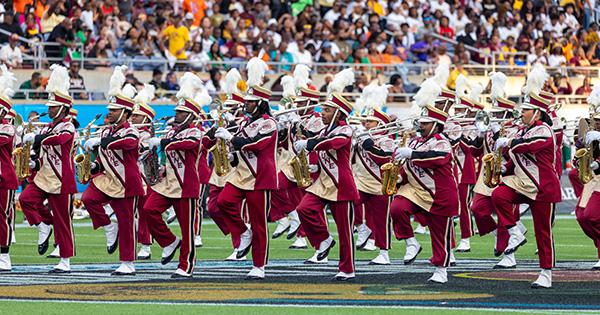I Will! The Legacy of Jack Trice
Throughout this football season, both in college and in the National Football, viewers have seen dedications to honor the lives of Black people who have been victimized by racism for decades. However, there is one Black man whose life is not often discussed, but yet the community of Ames, Iowa saw fit to honor. That man’s name is Jack Trice.
Trice did not live long on this world, passing away at the tender age of 21 in 1923. He was the first Black athlete to play for Iowa State College (University) Cyclones football program. The son of a former Buffalo Soldier, Trice was an amazing athlete, succeeding in track and football. His plan after graduating was to go to the south and help Black farmers in the field of animal husbandry. He was a tackle for the Cyclones, and on October 5, 1923, just before his second college football game ever, the freshman wrote a letter while staying in a racially segregated hotel in Minneapolis:
My thoughts just before the first real college game of my life: the honor of my race, family & self is at stake. Everyone is expecting me to do big things. I will! My whole body and soul are to be thrown recklessly about the field tomorrow. Every time the ball is snapped, I will be trying to do more than my part. On all defensive plays I must break through the opponents’ line and stop the play in their territory. Beware of mass interference. Fight low, with your eyes open and toward the play. Watch out for crossbucks and reverse end runs. Be on your toes every minute if you expect to make good. Jack.
The next day, Trice and his Cyclone teammates played against the University of Minnesota in Minneapolis. On the second play of the game, Trice broke his collarbone. He returned to the game, and during the third quarter, he was the victim of an illegal roll block and trampled by three Minnesota players. Trice was removed from the game and later sent to a Minneapolis hospital. He returned to Ames with the rest of his teammates, but would never play another game. On October 8, 1923, Trice died due to hemorrhaged lungs and internal bleeding due to the injuries suffered in the game.
The next day, Iowa State canceled classes after 3:00 pm in honor of Trice. His funeral was held at the campus a week later. Several Iowa State players claimed that the Minnesota players targeted him due to his skin color, although none of their players were charged. However, Iowa State did not play Minnesota again until 1989. Fortunately, the story didn’t end there.
 In 1973, a promotion began by a group of Iowa State students to name the new stadium after Trice. There was a committee called the Jack Trice Stadium Committee, and they were able to get more than 3,000 signatures. However, the stadium was named Cyclone Stadium, and in 1984 the field was named ‘Jack Trice Field.’ Again, the story didn’t end there as the Iowa State student body government raised money to erect a statue in 1987. Finally, after support from both students and well known figured such as Paul Newman, Nikki Giovanni and former Presidential Candidate Hubert Humphrey (from Minnesota of all places) in 1997 the stadium was finally named Jack Trice Stadium. Currently it is the only Division I stadium to be named after a Black player.
In 1973, a promotion began by a group of Iowa State students to name the new stadium after Trice. There was a committee called the Jack Trice Stadium Committee, and they were able to get more than 3,000 signatures. However, the stadium was named Cyclone Stadium, and in 1984 the field was named ‘Jack Trice Field.’ Again, the story didn’t end there as the Iowa State student body government raised money to erect a statue in 1987. Finally, after support from both students and well known figured such as Paul Newman, Nikki Giovanni and former Presidential Candidate Hubert Humphrey (from Minnesota of all places) in 1997 the stadium was finally named Jack Trice Stadium. Currently it is the only Division I stadium to be named after a Black player.
Jack Trice’s football career was cut short due to racism, but his legacy will last forever.



